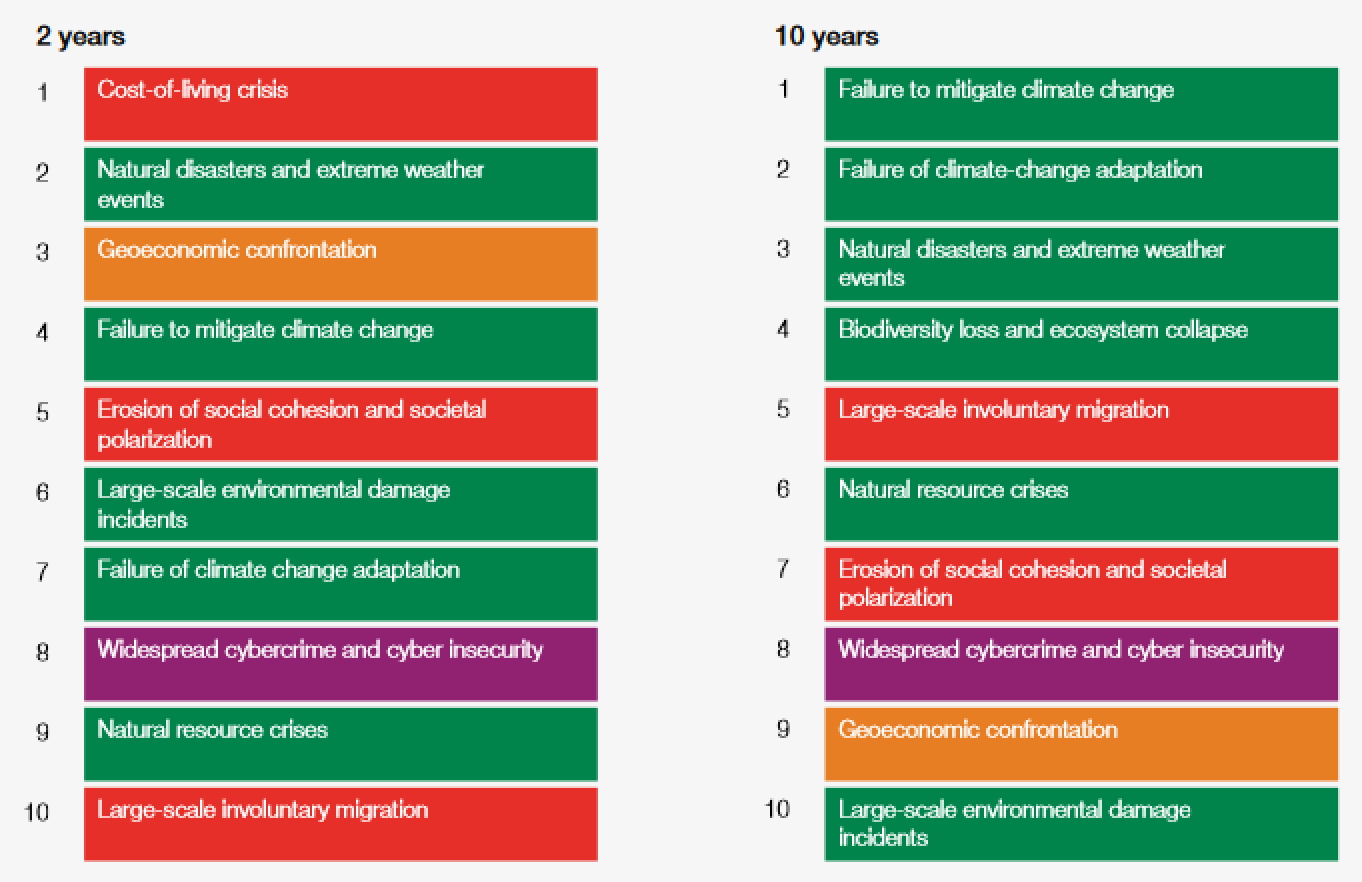Highlights:
The Global Risks Report 2023 presents the results of the latest Global Risks Perception Survey (GRPS). Chapter 1 considers the mounting impact of current crises (i.e. global risks which are already unfolding) on the most severe global risks that many expect to play out over the short term (two years). Chapter 2 considers a selection of risks that are likely to be most severe in the long term (10 years), exploring newly emerging or rapidly accelerating economic, environmental, societal, geopolitical and technological risks that could become tomorrow’s crises. Chapter 3 imagines mid-term futures, exploring how connections between the emerging risks outlined in previous sections may collectively evolve into a “polycrisis” centred around natural resource shortages by 2030. The report concludes by considering perceptions of the comparative state of preparedness for these risks and highlighting enablers to charting a course to a more resilient world.

“Cost-of-living crisis” is ranked as the most severe global risk over the next two years, peaking in the short term. “Biodiversity loss and ecosystem collapse” is viewed as one of the fastest deteriorating global risks over the next decade, and all six environmental risks feature in the top 10 risks over the next 10 years.
Compounding crises are widening their impact across societies, hitting the livelihoods of a far broader section of the population, and destabilizing more economies in the world, than traditionally vulnerable communities and fragile states. Building on the most severe risks expected to impact in 2023 – including “Energy supply crisis”, “Rising inflation” and “Food supply crisis” – a global Cost-of-living crisis is already being felt. Economic impacts have been cushioned by countries that can afford it, but many lower-income countries are facing multiple crises: debt, climate change and food security. Continued supply-side pressures risk turning the current cost-of-living crisis into a wider humanitarian crisis within the next two years in many import-dependent markets.
The report describes four potential futures centred around food, water and metals and mineral shortages, all of which could spark a humanitarian as well as an ecological crisis – from water wars and famines to continued overexploitation of ecological resources and a slowdown in climate mitigation and adaption.
The report concludes that without significant policy change or investment, the interplay between climate change impacts, biodiversity loss, food security and natural resource consumption will accelerate ecosystem collapse, threaten food supplies and livelihoods in climate-vulnerable economies, amplify the impacts of natural disasters, and limit further progress on climate mitigation.

Login (or register) to follow this conversation, and get a Public Profile to add a comment (see Help).
12 Jan 2023
Plant pests in the European Union 2022-2024: Overview report
Safety in the EU: No safe food without safe feed
Agroecology as a transformative approach to tackle climatic, food, and ecosystemic crises
Share this page